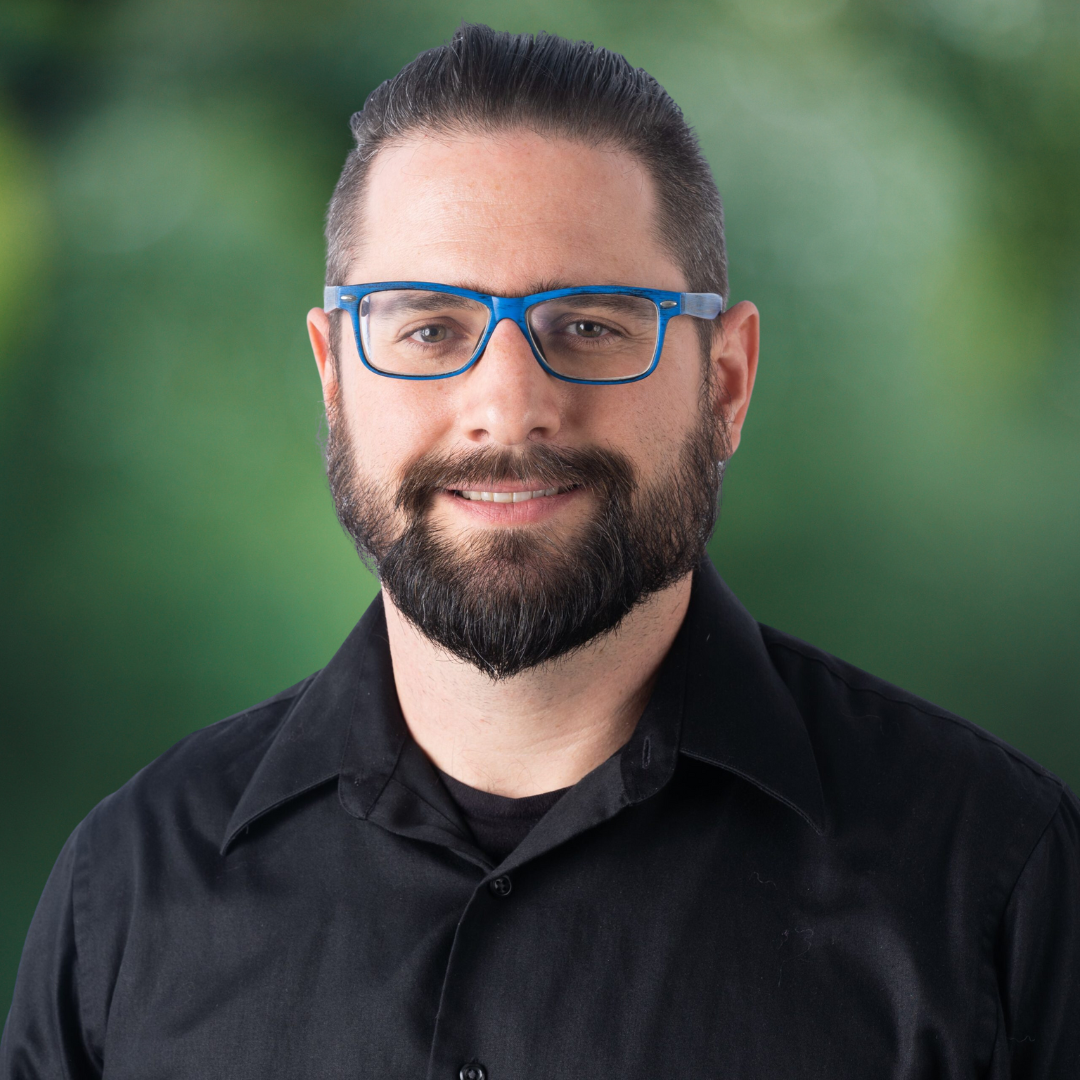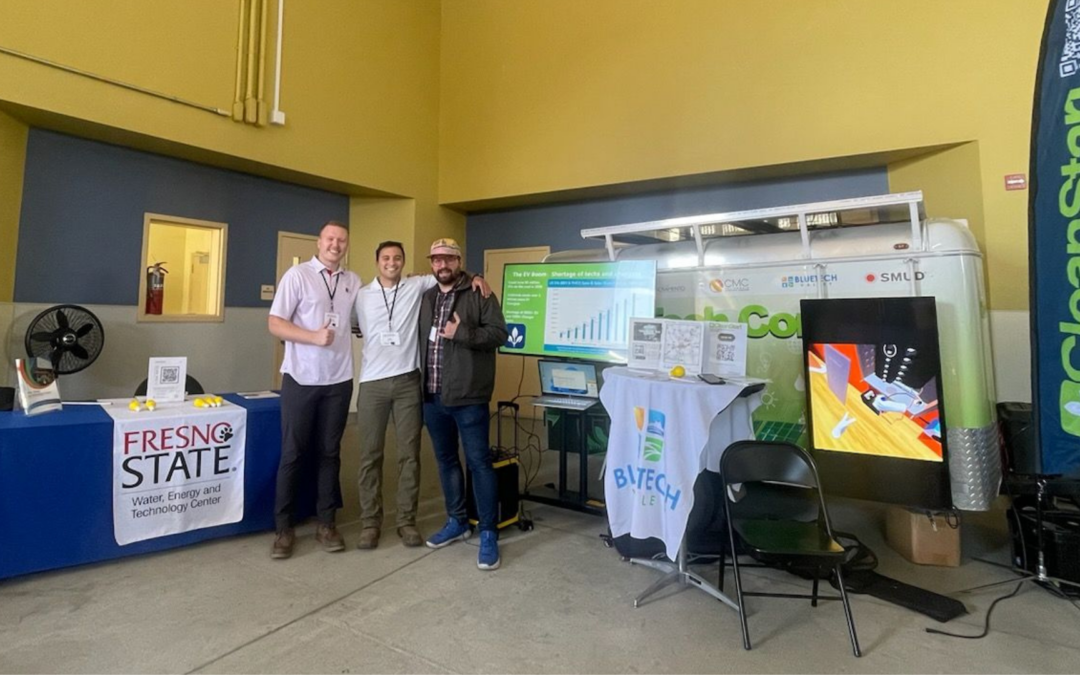
AgTech Day: A Crossroads of Innovation and Agriculture
As the Executive Director of CleanStart, I had the pleasure of attending the 7th annual AgTech Day, an event that perfectly encapsulates the spirit of innovation that drives the agricultural sector forward. Organized by the esteemed Center for Irrigation Technology (CIT), along with the Advanced Pumping Efficiency Program (APEP) and the Water, Energy, and Technology (WET) Center, this event is a cornerstone for those at the forefront of marrying technology with farming.
Since its inception in 2017, AgTech Day has been a beacon of progress, situated on the dynamic Fresno State Farm. This year was no different, with over 40 vendors displaying their cutting-edge solutions in a bustling trade show. Although the final program is still being fine-tuned, the buzz of anticipation was palpable, and I urge all interested parties to reserve their spots without delay.
The focus of this year’s event was unmistakably on water and irrigation innovations—a critical area given our current environmental challenges. CleanStart’s presence, with our CleanTech Connect outreach trailer, was a testament to our commitment to sharing knowledge about the ongoing energy transition.
A standout aspect of the event was the real-world demonstrations by startups working with the WET Center. Witnessing their ingenuity on actual farms was not just impressive but also inspirational. Moreover, the speakers were invaluable, offering insights into efficient water use and regulatory compliance that farmers could immediately apply to their operations.
Personal connections formed the heart of AgTech Day. Companies and farmers engage in meaningful dialogue, which is vital for nurturing business relationships. Attendees had the chance to visit projects right where the magic happens—on the farms. These field tests weren’t just demonstrations; they were proof of the innovations’ real-world efficacy.
CleanStart’s role was to guide conversations towards the opportunities presented by the energy transition. There was a notable eagerness to learn about funding opportunities and the capital investments driving these advancements. I found myself deep in the discussion about agro-voltaics, among other innovative intersections between agriculture and energy. The enthusiasm was evident, with many keen on understanding how they could integrate new technologies into their practices and benefit from available grants.
AgTech Day is a gathering where farmers and industry leaders shape the future of agriculture. It’s where technology meets tenacity, and I am already looking forward to what the next year will bring.
ABOUT THE AUTHOR
Thomas is the Executive Director of CleanStart. Thomas has a strong background in supporting small businesses, leadership, financial management and is proficient in working with nonprofits. He has a BS in Finance and a BA in Economics from California State University, Chico. Thomas has a passion for sustainability and a commitment to supporting non-profits in the region.
Sponsors




Weintraub | Tobin, Revrnt, Moss Adams, PowerSoft.biz, Greenberg Traurig

Revving Up Tradition: EV Lowriding
When you think of electric vehicles, what do you think of? Teslas? Rivians? Quiet sedans owned by the few that can currently afford them? That doesn’t connect with the diverse car culture of Sacramento today. The intersection of low-rider culture and the burgeoning field of electric vehicles (EVs) presents a unique opportunity for job creation and community engagement. ShaVolla and Carlos Rodriguez, members of the Duke’s Car Club Sacramento Chapter, has a different vision, and connected with Jaime Lemus Division Manager at Sacramento Metropolitan Air Quality Management District, to make something cool. EV Access thru EV Lowriding is an initiative to electrify a lowrider vehicle isn’t just a technological innovation; it’s a culturally grounded project that aims to bridge the gap between traditional automotive customization and the future of transportation.
The Cultural Significance of Lowriders
Lowriders are more than just cars; they are rolling canvases that reflect the identities, families, and histories of their owners. For many, these vehicles are heirlooms, passed down through generations, encapsulating stories and memories. They’re not merely modes of transport but symbols of community, artistry, and pride. In the very essence of their customization — the detailed paintwork, the intricate hydraulics, the polished chrome — lies a legacy of innovation and personal expression.
The Electric Revolution in the Lowrider Community
The advent of EVs is revolutionizing the automotive industry. However, there’s a valid concern within the lowrider community about being left behind in this shift. Jaime Lemus’s project, inspired by conversations with figures like Savala Rodriguez, is a proactive step towards ensuring that this doesn’t happen. By creating an electric lowrider, the project not only keeps the community at the forefront of automotive technology but also pays homage to the spirit of customization that defines lowriding.
Job Opportunities and Skill Development
The electrification of lowriders opens up a spectrum of job opportunities. It requires a blend of traditional automotive skills and modern technology, creating roles for digital technicians who can code and operate laptops as well as for those skilled in bodywork, welding, and the mechanical aspects of car modification. This unique combination of skills can generate job opportunities that honor the past while looking to the future.
Educational Pathways and Training
To equip individuals with these hybrid skills, the EV Lowrider project includes working with SAVA, Sacramento Academic and Vocational Academy, developing a curriculum focused on EV retrofitting. This program is not just about job training; it’s about creating a pathway for young enthusiasts and existing professionals to adapt to new technologies while keeping the essence of the lowrider culture intact. It also opens doors for those who may not be interested in traditional four-year college degrees, providing an alternative route to gainful employment and entrepreneurship.
Community Empowerment and Inclusion
One of the most compelling aspects of this initiative is its potential to empower communities. By involving local business owners, such as those on Franklin Boulevard with auto body shops, the project ensures that the economic benefits of this technological transition are distributed within the community. Furthermore, the project could help dismantle the stigma often associated with government programs, demonstrating a tangible benefit to engaging with such initiatives.
Intergenerational Collaboration
The project is also an exercise in intergenerational collaboration. The experience and wisdom of older car modifiers blend with the tech-savvy insights of the younger generation, creating a learning environment that is both dynamic and inclusive. This ensures that the legacy knowledge within the community is not lost but is instead enriched with new technological perspectives.
Future Prospects and Community Decisions
The decision on which vehicles to electrify next is community-driven, emphasizing a democratic approach to technological advancement. Whether it’s a classic truck, a luxurious sedan, or an iconic hot rod, the community’s input is paramount. This process not only fosters community engagement but also ensures that the vehicles represent the people they serve.
The electrification of lowriders is not just a project about cars; it’s about respecting tradition while embracing innovation. It’s about creating jobs, building skills, and ensuring that a vibrant culture continues to thrive in an electric future. As this initiative unfolds, it promises to serve as a blueprint for how communities can navigate technological change without losing the essence of their cultural heritage.
ABOUT THE AUTHOR
Thomas is the Executive Director of CleanStart. Thomas has a strong background in supporting small businesses, leadership, financial management and is proficient in working with nonprofits. He has a BS in Finance and a BA in Economics from California State University, Chico. Thomas has a passion for sustainability and a commitment to supporting non-profits in the region.
Sponsors




Weintraub | Tobin, Revrnt, Moss Adams, PowerSoft.biz, Greenberg Traurig
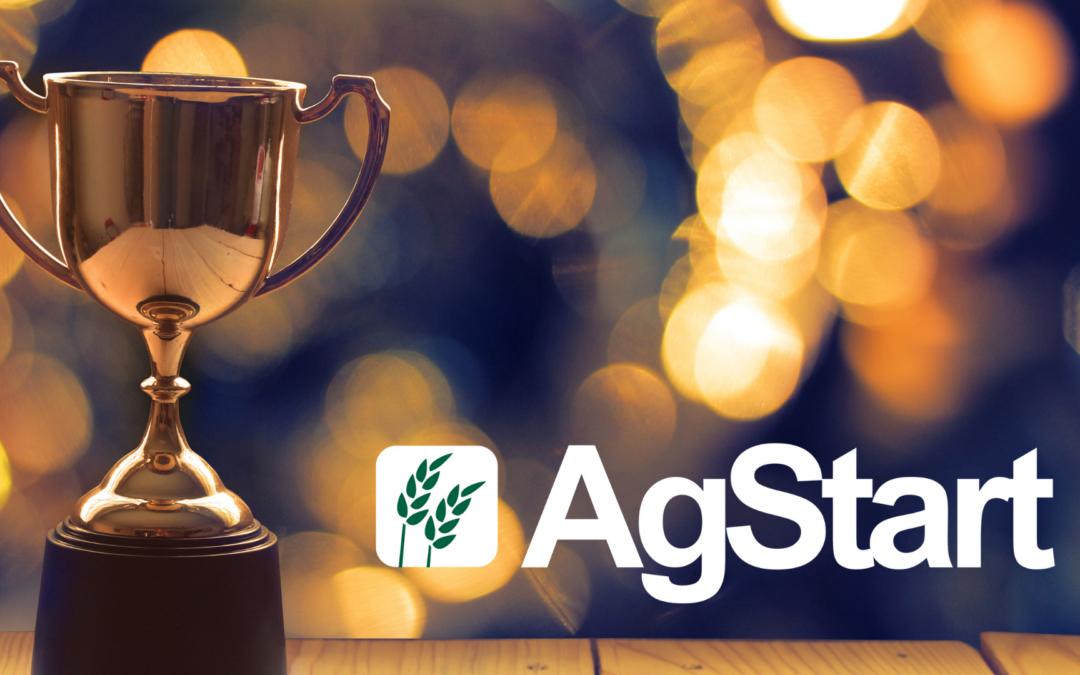
John Selep: Innovation Leader of the Year
John Selep’s recognition as Innovation Leader of the Year at the Nov. 2 Awards, showcasing his impactful contributions to agtech and notable achievements in establishing AgStart and fostering agtech incubators nationwide.
Congratulations to our colleague, John Selep!
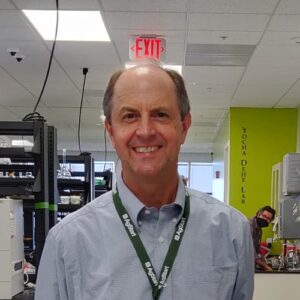 At the Nov. 2 Innovation Awards ceremony, a very special award was given to John Selep, President of AgStart, as the Innovation Leader of the Year. AgStart is a sister company to CleanStart, having both been under the umbrella of SARTA prior to 2015. John has done a remarkable job in establishing an office and full-featured wet lab in `13,000 square feet of space in Woodland. He also organized similar agtech incubators across the country into a powerful network, as well as landing generous sponsorships from leading ag tech companies. This award was well-deserved. Good work, John!
At the Nov. 2 Innovation Awards ceremony, a very special award was given to John Selep, President of AgStart, as the Innovation Leader of the Year. AgStart is a sister company to CleanStart, having both been under the umbrella of SARTA prior to 2015. John has done a remarkable job in establishing an office and full-featured wet lab in `13,000 square feet of space in Woodland. He also organized similar agtech incubators across the country into a powerful network, as well as landing generous sponsorships from leading ag tech companies. This award was well-deserved. Good work, John!

ABOUT THE AUTHOR
Gary Simon is the Chair of CleanStart’s Board. A seasoned energy executive and entrepreneur with 45 years of experience in business, government, and non-profits.
CleanStart Sponsors
Weintraub | Tobin, BlueTech Valley, Revrnt, River City Bank
Moss Adams, PowerSoft.biz, Greenberg Traurig, California Mobility Center

Innovation Triumph: XeroHome & Origin Win!
Uncover the success stories of XeroHome and Origin Materials in the 2023 Innovation Awards. From AI-driven home recommendations to revolutionary wood-waste chemicals, witness the future of sustainability and technology unfold.
Congratulations to Award Winners XeroHome and Origin Materials!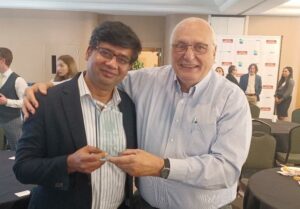
Mudit Saxena and his team received the 2023 Sustainability Innovation Award from the Sacramento Business Journal on Nov. 2. Their innovation XeroHome uses AI to make custom recommendations for individual homes using public data and puts it in an accessible form that homeowners can easily access. This eliminates the need for house-by-house energy audits and adds information on incentives and financing available. You can learn more about XeroHome at our upcoming Spotlight Pitch Night on November 16 at the Carlsen Center. They will be making a 10 minute pitch and answering questions. Sign up to come this event if you haven’t already done so.
At the same event, long-time regional clean tech community member Origin Materials received the Innovation Longevity Award. Origin had its start back in 2002 as Micromidas and renamed itself Origin Materials in 2008. Now they have opened a $130 million production facility in Ontario, Canada, and are preparing to construct a $1.6 billion plant in Louisiana soon. Origin makes industrial chemicals from wood waste that replace those from petroleum. They have a number of big-name backers including PepsiCo, Nestle, Danone, and Mitsubishi Group, with more to be added. It has been quite a journey for the team, and demonstrated their persistence and grit—contributing to their award-winning longevity.
This year there were a much larger number of awards handed out for innovation from many sectors—16 in all. It was a very inspiring event. You can read about all the Innovation Awards in the Nov. 3-9 edition of Sacramento Inno, a free publication of the Sacramento Business Journal. Take a special look at customer- and environment-friendly Quick Quack Car Wash, and Oobli drinks sweetened with a protein not a carbohydrate.


ABOUT THE AUTHOR
Gary Simon is the Chair of CleanStart’s Board. A seasoned energy executive and entrepreneur with 45 years of experience in business, government, and non-profits.
CleanStart Sponsors
Weintraub | Tobin, BlueTech Valley, Revrnt, River City Bank
Moss Adams, PowerSoft.biz, Greenberg Traurig, California Mobility Center

